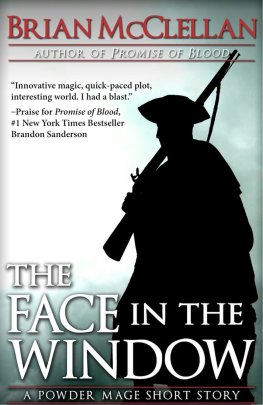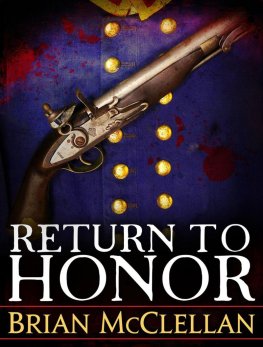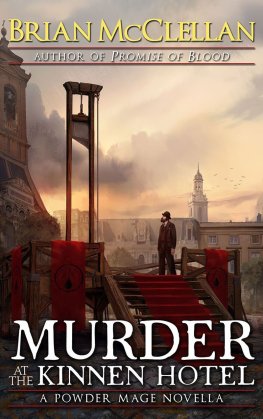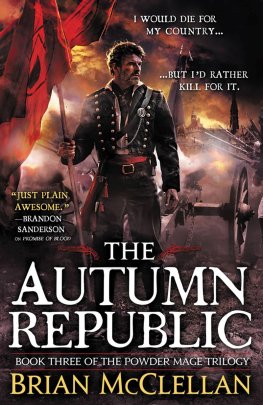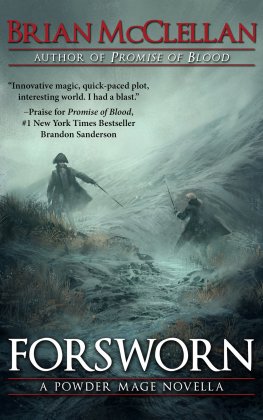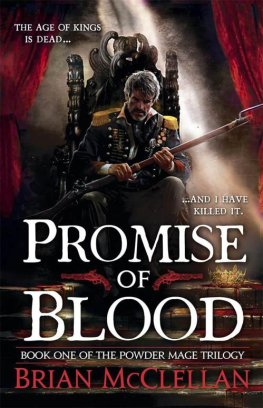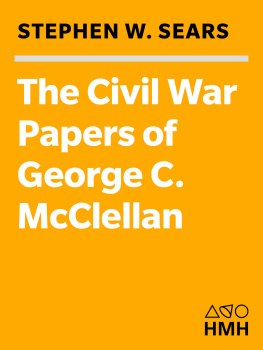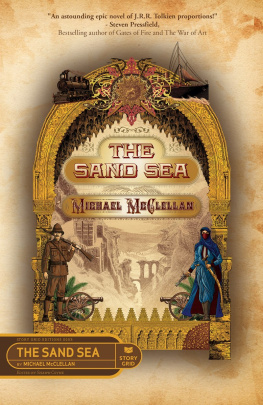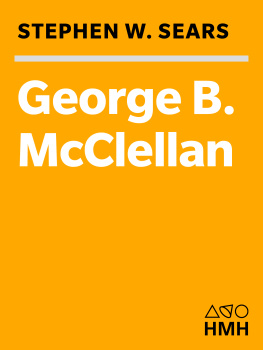This edition is published by Papamoa Press www.pp-publishing.com
To join our mailing list for new titles or for issues with our books papamoapress@gmail.com
Or on Facebook
Text originally published in 1941 under the same title.
Papamoa Press 2018, all rights reserved. No part of this publication may be reproduced, stored in a retrieval system or transmitted by any means, electrical, mechanical or otherwise without the written permission of the copyright holder.
Publishers Note
Although in most cases we have retained the Authors original spelling and grammar to authentically reproduce the work of the Author and the original intent of such material, some additional notes and clarifications have been added for the modern readers benefit.
We have also made every effort to include all maps and illustrations of the original edition the limitations of formatting do not allow of including larger maps, we will upload as many of these maps as possible.
GEORGE B. McCLELLAN
THE MAN WHO SAVED THE UNION
BY
H. J. ECKENRODE AND BRYAN CONRAD
FOREWORD
THIS BOOK ORIGINATED in studies made by the historians of the Conservation Commission in the Richmond battlefield area, which is comprised in the Richmond Battlefield Park, a charge of the commission. These battlefields are the best preserved and least studied (because long inaccessible) in the country. A detailed examination of the terrain convinced the historians, both of them Southerners, that McClellan was a great general and that he has been underestimated by historians. Their opinion was confirmed by a study of the records. They came to the conclusion that it was McClellan who prevented the defeat of the North in 1861-62 when the Confederacy was relatively stronger than it was at a later time.
Since there seemed to be no military reasons for the animadversions cast on McClellan, the historians of the commission were persuaded that the hostile feeling toward him is political, springing mainly from his candidacy against Lincoln in the election of 1864. Believing that politics should not be permitted to influence military judgments, they have written this book, partly for the purpose of doing justice to a great man who has suffered at the hands of history. It is based on the ground itself and the original sources, and is believed to be a contribution to American and Virginia history.
CHAPTER ONEYOUTH, EDUCATION, ADVENTURE
A GENERATION AGO historians condemned Thucydides for declaring that war is the chief theme of history; they fancied that it was the bickering of political parties. However, the events of the past quarter century have so borne out the observation of the ancient Greek that few people are now inclined to disagree with him.
In this connection it is to be noted that the United States has made important contributions to the art of war, for in our conflict of 1861-65 the ironclad, the submarine, the railway gun, the military telegraph, and the torpedo had their real origins, while the use of earthworks in maneuver and the open order of infantry advance were essentially American improvements. We have done our share in the realm of Mars. Moreover the American Civil War should no longer be studied as an isolated phenomenon but as a significant event, and one of tremendous consequences, in the overthrow of the old agricultural order by industrialism. As much as any other nation, we are a part of world history.
The portrayer of men of action necessarily writes biography from a very different angle from biographers of artists, especially writers. The interest in men of action lies in the action itself; all else is merely corroborative and supplementary. But narratives of artists are literary history or criticism rather than biography unless they deal extensively with private life. From this point of view love is an incident in the career of Washington or Grant or Lee but all-important in the lives of Shelley and Byron. To be particular, the business and military career of George B. McClellan is the important matter. That he was successful in love and enjoyed a happy family life is gratifying, but what counts with him was what he did in his wonderful, German-like organization of the Army of the Potomac, in the terrible withdrawal to James River, and amidst the flames and detonations of Sharpsburg.
Pennsylvania, the great mother that has poured out so many sons and daughters, north, south, west, was the birthplace of the first commander of the Union armies in the War between the States. It might be recollected that Jefferson Daviss grandfather was from Philadelphia, where George B. McClellan was born on December 3, 1826.
He came into a home of culture, something that colored his life all the way through; if he could have sometimes forgotten that he was a gentleman it might have been better for him. McClellans father, George McClellan, graduated from Yale in 1816 and from the medical school of the University of Pennsylvania in 1819, thus enjoying the best education the America of that day could afford. He soon rose to eminence, becoming one of the founders of the Jefferson Medical College in 1825.
His wife was Elizabeth S. Brinton, a woman of character, to whom her son, the future general, was devoted. She made the pleasant home in which George B, McClellan passed the happy years of his boyhood. After a good preparatory education, he entered the University of Pennsylvania in 1840, remaining there two years. Then fate stepped in and he received an appointment to the United States Military Academy at West Point in 1842. This change in his education was probably due to economic pressure, for Dr. McClellan, though distinguished, was far from well-to-do.
McClellans precocity is shown by the fact that he was less than sixteen years old when he entered West Point; his ability and fine physique must have caused a suspension of regulations in his case. Although rather short of statureLittle Mac to his admiring soldiersfive feet, eight inches tall, he was well developed, with a large chest expansion. Handsome in face, graceful in carriage, he was one of the most attractive boys of his class, especially as he was endowed with a rare magnetism of manner. It was evident from the outset that he was cut out for something beyond the ordinary career.
Acutely homesick at first, McClellan soon grew to like West Point and did well in his studies. His chief friends were among the Southern boys, and Dr. William Starr Myers remarks, rather acidly, It is evident that the culture, refinement and airs of the gallant, so characteristic of the Southern aristocrat, were exceedingly attractive to McClellan and struck a responsive chord in his consciously gentle nature. {1} The fact is that most of the Southern youths at West Point came of cultured families while the Northerners and Westerners were often plain farm boys. In time great generals developed from both strains.





